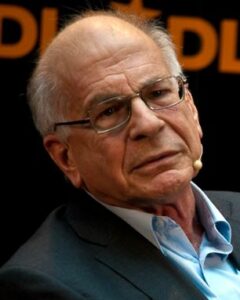The Feminine Mystique
 Bettye Naomi Goldstein (1921-2006) was born in Illinois to Jewish parents of Russian and Hungarian heritage. She experienced a great deal of antisemitism in her youth which, she would later explain, fueled her “passion against injustice”. She became a writer in high school, and later penned award-winning poems. She graduated with a degree in psychology from the all-women’s Smith College in 1942, then did research at UC Berkeley. Shortly after, she dropped out of school, moved to New York, married Carl Friedan, and became a housewife, while doing some freelance writing on the side. It was at her high school’s fifteenth reunion that she saw an underlying unhappiness in the lives of her former classmates. The discussions, research, and study that came out of this eventually crystallized in a 1963 book called The Feminine Mystique. Friedan wrote about the problem “with no name”, of the “depressed suburban housewife” who was not given the opportunity to fulfil “the basic human need to grow”. The book was an instant bestseller, and is credited with launching the second wave of feminism. In 1966, Friedan co-founded the National Organization of Women (NOW), of which she was the first president. The organization was founded in her hotel room, with its purpose written on a napkin: to ensure legal equality and employment equality for all. The organization also worked to establish subsidized child care. In 1970, Friedan led and organized the Women’s Strike for Equality, with marches in over 40 cities, and 50,000 in New York City alone. Friedan supported many other women in important leadership roles, including Shirley Chisholm, America’s first black congresswoman. (Chisholm had an incredible encounter with the Lubavitcher Rebbe, and credited him with inspiring much of her good work). Friedan worked hard to ensure that feminism not be equated with homosexuality (calling lesbian feminists “the lavender menace”), or with hating men, or with abortion (she did support a woman’s right to choose, but called it a “secondary” issue). She would say: “The women’s movement was not about sex, but about equal opportunity in jobs and all the rest of it.” She maintained the supreme value of a traditional family unit, and that children should “ideally come from mother and father”. Though originally self-described as “agnostic”, in her later years she saw the value in religion and started to regularly attend prayer services at her local synagogue. Friedan had also cofounded the First Women’s Bank in 1973 and Women Against Gun Violence in 1994. Among her many awards are Humanist of the Year (1975), the Eleanor Roosevelt Leadership Award (1989), induction into the National Women’s Hall of Fame, and multiple honorary degrees.
Bettye Naomi Goldstein (1921-2006) was born in Illinois to Jewish parents of Russian and Hungarian heritage. She experienced a great deal of antisemitism in her youth which, she would later explain, fueled her “passion against injustice”. She became a writer in high school, and later penned award-winning poems. She graduated with a degree in psychology from the all-women’s Smith College in 1942, then did research at UC Berkeley. Shortly after, she dropped out of school, moved to New York, married Carl Friedan, and became a housewife, while doing some freelance writing on the side. It was at her high school’s fifteenth reunion that she saw an underlying unhappiness in the lives of her former classmates. The discussions, research, and study that came out of this eventually crystallized in a 1963 book called The Feminine Mystique. Friedan wrote about the problem “with no name”, of the “depressed suburban housewife” who was not given the opportunity to fulfil “the basic human need to grow”. The book was an instant bestseller, and is credited with launching the second wave of feminism. In 1966, Friedan co-founded the National Organization of Women (NOW), of which she was the first president. The organization was founded in her hotel room, with its purpose written on a napkin: to ensure legal equality and employment equality for all. The organization also worked to establish subsidized child care. In 1970, Friedan led and organized the Women’s Strike for Equality, with marches in over 40 cities, and 50,000 in New York City alone. Friedan supported many other women in important leadership roles, including Shirley Chisholm, America’s first black congresswoman. (Chisholm had an incredible encounter with the Lubavitcher Rebbe, and credited him with inspiring much of her good work). Friedan worked hard to ensure that feminism not be equated with homosexuality (calling lesbian feminists “the lavender menace”), or with hating men, or with abortion (she did support a woman’s right to choose, but called it a “secondary” issue). She would say: “The women’s movement was not about sex, but about equal opportunity in jobs and all the rest of it.” She maintained the supreme value of a traditional family unit, and that children should “ideally come from mother and father”. Though originally self-described as “agnostic”, in her later years she saw the value in religion and started to regularly attend prayer services at her local synagogue. Friedan had also cofounded the First Women’s Bank in 1973 and Women Against Gun Violence in 1994. Among her many awards are Humanist of the Year (1975), the Eleanor Roosevelt Leadership Award (1989), induction into the National Women’s Hall of Fame, and multiple honorary degrees.
Words of the Week
A rabbi who is an optimist taught me that what you may think is a challenge is a gift from God, and if poor babies have milk, and poor children have food, it’s because this rabbi in Crown Heights had vision.
– Shirley Chisholm, American’s first black congresswoman, on the Lubavitcher Rebbe



